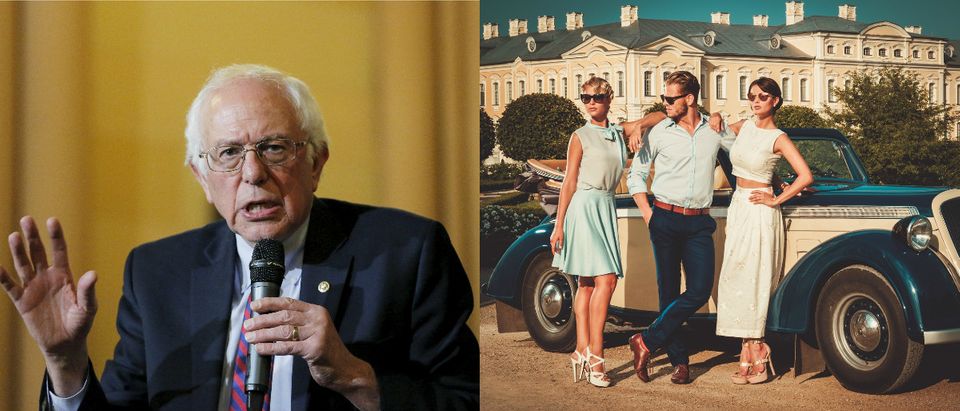The proposal by self-proclaimed socialist Democratic presidential candidate Bernie Sanders to make tuition free at America’s public colleges and universities would provide almost $17 billion in free handouts to already-comfortable American families in the upper half of income distribution. Meanwhile, Bernie’s plan would cause just $13.5 billion to trickle down to families in America’s poor half — the ones who would have considerably more trouble covering room, board, textbooks, travel and other non-tuition costs.
The numbers come from new analysis by The Brookings Institution, a a center-left Washington, D.C.-based think tank.
“Under the Sanders free college proposal, families from the top half of the income distribution would receive 24 percent more in dollar value from eliminating tuition than students from the lower half of the income distribution,” Brookings researcher Matthew M. Chingos explains.
“The non-tuition costs of attending college, including living expenses, are larger than the costs of tuition and fees for most students. Free college, which does not address these expenses, leaves families from the bottom half of the income distribution with nearly $18 billion in annual out-of-pocket college costs that would not be covered by existing federal, state, and institutional grant programs.”
Essentially, then, Chingos found that ridding America’s public four-year colleges and universities — and also its public two-year institutions — of the vexing problem of a tuition price would result in a subsidy for rich people. Rich people could apply their new subsidy to the total cost of attending college. Poor people, while eligible for the same subsidy, would be less able to use it because they would not be able to absorb non-tuition college costs as easily.
College students “from the most affluent 25 percent of families represent 11 percent of students at public colleges, but would receive 18 percent of the benefits if tuition were eliminated,” the Brookings researcher notes. These rich students are typically dependent on their rich parents for cash.
The poorest quartile of students represent 14 percent of the students at public colleges and universities. They would derive 16 percent of the benefits from free tuition.
Meanwhile, students in the vast middle (many of them making their way through the world independent of whatever wealth their parents possess) would get the shaft. The middle 50 percent of students would only get 33 percent of the benefits under the free-public-college plan touted by Sanders.
A big reason that a free-college plan provides such limited benefits for students who are neither rich nor poor is that these students are most likely to be muddling through school part-time.
“College enrollment among low-income students might rise relative to other students, but it also might fall if competition for places at public colleges increases as higher-income students shift from the private to the public sector given the change in price,” the report also notes.
Hillary Clinton, the front-runner for the 2016 presidential nomination, “has criticized Sanders’s plan as a giveaway to the wealthy, arguing that Donald Trump’s kids shouldn’t get a free ride, proposing instead to increase student aid targeted at students from low- and middle-income families,” the Brookings analysis notes.
Sanders and his supporters have argued that their free-college plan will not benefit rich people as much as critics claim because it will also soak the rich with taxes. (Bernie Sanders Demands $15 Per Hour Minimum Wage, Pays His Own Interns $12 PER HOUR)
Last summer, the Vermont senator introduced a bill which would have added a 50-cent tax for every “$100 of stock trades on stock sales, and lesser amounts on transactions involving bonds, derivatives, and other financial instruments,” according to a press release from a group called Robin Hood Tax on Wall Street. The Robin Hood group observed that the new federal surcharge would reduce and decrease trading — and suggested that such an economic shrinkage would improve the economy. (RELATED: Bernie Sanders Wants Huge ‘Robin Hood’ Stock Tax To Make College Free)
Follow Eric on Twitter. Like Eric on Facebook. Send education-related story tips to erico@dailycaller.com.


